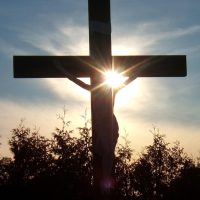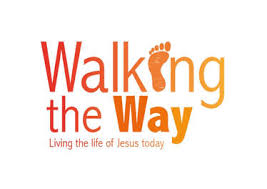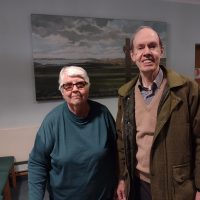Sermon given by Revd Sue McCoan 16th Jan 2022 at St. Andrew’s Ealing
John 2:1-11
The wine has run out.
It is hard to overstate the disaster this would be for the host of a feast, at the time of Jesus. This was a culture with hospitality as a core value. You were expected to feed people. If you had invited them, you were expected to feed them generously. And if you had invited them to a special occasion, like a wedding, then you were expected to have enough wine for your guests to drink and celebrate.
To run out of wine at a wedding is a source of the most dreadful shame for the host of the feast, and would reflect very badly on the newly-married couple. The wine has run out; the party’s over. We could imagine the bridegroom and the steward of the feast looking at each other in horror – now what do we do?
Happily for all concerned, Mary the mother of Jesus is on the case. She has a quiet word with Jesus; he slips into the kitchen and has a quiet word with the servants; and before most of the guests are even aware there is a problem, there is more wine; honour is restored, and the feast can continue.
I love this story. There is so much in it. It’s a party – Jesus is a man who knows how to have a good time, and who wants other people to have a good time too. And it’s a sign. This is the first miracle that Jesus performs, according to John’s gospel, the first sign of the coming of God’s kingdom. It’s a sign of God’s abundance – it’s good wine and there’s plenty of it; of God’s celebration – a wedding is often used in the bible as an image of the relationship between God and God’s people, between Christ and the church; and it’s a sign of redemption, for the bridegroom and steward, as they face an impossible situation and are given a way out and a fresh start.
Reading it again this week, though, I was struck by another level of meaning in this incident. That is, the way it stands as a metaphor for the times we live in. Here we have been, in the affluent parts of the world, revelling in our creature comforts – the convenience of private transport, of foods from around the world, of exotic holidays, of more clothes than we have room to store. Every generation since the second world war has been more wealthy than the one before, and it seemed as if that would never end. We have partied on like there’s no tomorrow. And now, not suddenly but quite rapidly, the wine has run out.
We have hit the limits of the earth’s resources. We cannot go on living the way we are without doing lasting and serious damage to the planet. Scientists, people of faith and economists speak with one voice on this. But we don’t know what to do. Or rather, we do know what to do, but our political leaders are under pressure from various vested interests not to make changes, and they fear losing votes.
The wine of our affluence has run out. The party’s over. But our leaders don’t want to tell us, and we don’t want to go home.
And those of us who do see what’s going on are left standing, like the bridegroom and the steward, looking at each other in horror and dismay – now what do we do?
We might find a similar thing in our personal lives. We bowl along merrily, as if everything around us was always going to be the same, and then all of a sudden things change – an unexpected diagnosis, loss of a job, bereavement – and – the wine has run out. It feels as if the party’s over. And again, we’re left asking, now what do we do?
There are two things in this wedding miracle that really help us today.
The first is the role of Mary. Mary sees what’s going on. It matters that we keep our eyes open – that we look behind the fine words that came out of Cop26, and see the actual decisions that are being made, the policies that are being brought in. It matters that we retain, and use, our right to peaceful protest. There is a bill going through the House of Lords very soon that would severely restrict that right, and we are being distracted by headlines about poor behaviour. We need to see.
Mary sees what’s going on, and she tells Jesus. She doesn’t know how he might help, or what he might do; she just knows she can tell him. And when he responds initially in a less than encouraging way – what’s that got to do with us? My time has not yet come – she is not put off. She tells the servants to do whatever he tells them. I sometimes get discouraged by the enormity of climate change; I can see that my small effort of recycling is a drop in the ocean compared with what’s needed. But Mary shows us, we don’t have to have all the answers; we don’t have to do everything ourselves. What we have to do is to tell Jesus – to tell Jesus we don’t know what to do, that we feel scared, if that’s how it is.
So we can learn from Mary. And the second thing that helps us for today is the role of the servants.
Servants, it goes without saying, are busy people. That’s what they are there for. At a feast, they will be rushed off their feet, preparing food, serving guests, clearing tables, and all the rest. And suddenly here is this man telling them to fill up the water jars reserved for purification. This is a wedding, Jesus! Nobody’s going to be doing rites of purification at a wedding! We could fill those jars tomorrow when we’ve got time to breathe! Do what he tells you, says Mary. Fill the jars, says Jesus. They do it. And then, when Jesus says, draw some out, and take it to the steward, they do that, too.
None of this makes sense, but they trust in Jesus and what he calls them to do, without needing to know what the point is. It’s only when they see the steward taste what is now wine, and say how good it is, that the servants realise the miracle that has happened. And they are the only ones who know the whole picture. Jesus isn’t ready to reveal himself to the world yet, and he’s right to be cautious – later on, he gets crowds of people running after him because he’s provided free bread for 5,000. Imagine what they’d have done if they found out he could do the same with wine. But the servants can be trusted, because they trusted him.
A word of caution. Jesus, on this occasion, in this wedding feast at Cana, restores things to the way they were, but better. There is more wine, and the feast continues This is a special event, a special sign of God’s abundance, God’s celebration, and God’s redemption. It does not always work that way, when our wine runs out and we turn to Jesus.
In our current situation, it is unthinkable that Jesus would work a miracle that lets affluent people keep living beyond the means of the planet while others suffer. In our own lives we may not get back to the job or the health we once had. God is still a God of abundance, celebration and redemption; it just might show up in different and unexpected ways.
But the promise is still there. The abundance is still there. Jesus came that we might have life in all its fullness. He came to redeem, to bring value to what seems worthless. The sign was a special event, a one-off, but Jesus is with us always.
When we get to a point in life where it feels as if our wine has run out, our party’s over, we don’t know what we can do – then that’s the time for us notice; the time for us to talk to Jesus; the time for us to do what we hear Jesus calling us to do. Above all, it’s the time to trust in the abundant love of God.
Amen.





